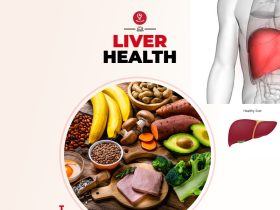
Migraine is a common issue among youth today, with headaches that are far more unbearable than typical ones. While migraines can cause significant discomfort, other conditions like tumors or meningitis can also lead to severe headaches. Along with medical treatment, certain foods can help reduce this severe pain.
Understanding Migraine and Diet
Migraine is a neurological condition often linked to genes, stress, and hormones. Research shows that diet plays a role in migraines, though the effects vary from person to person. What triggers headaches in one individual might not affect another.
Causes of Migraine
The exact cause of migraines is unknown but is believed to involve short-term changes in brain chemicals, nerves, and blood vessels. Genetics also play a role, with about half of those affected having a close relative who also suffers from migraines. Common triggers include:
- Menstruation
- Mental stress
- Exhaustion
- Certain foods or drinks
What Triggers a Migraine?
Migraine triggers can be hormonal, related to certain medications, poor sleep quality, emotional or physical stress, dietary factors, environmental conditions, or pharmacological influences. Keeping a diary can help identify specific triggers.
Diets for Migraine: Foods to Eat and Avoid
While there’s no one-size-fits-all cure for migraines, certain foods rich in minerals, vitamins, and fatty acids can help manage the pain. Here are some dietary recommendations:
Omega-3 Fatty Acids
Omega-3 fatty acids help reduce inflammation and migraine pain. Foods rich in omega-3 include:
- Mackerel
- Salmon
- Herring
- Anchovies
- Oysters
- Sardines
- Cod liver oil
- Caviar
- Flax seeds
- Chia seeds
- Walnuts
- Soybeans
Magnesium-Rich Foods
Magnesium helps improve blood circulation and relieve migraine pain. Foods rich in magnesium include:
- Dark leafy greens
- Beans
- Nuts
- Whole grains
- Avocados
- Tuna
- Whole-wheat bread
- Pumpkin seeds
- Almonds
- Spinach
- Shredded wheat cereal
- Bananas
- Milk
- Rice
- Apples
Ketogenic Foods
The ketogenic diet, which is high in fat, moderate in protein, and low in carbohydrates, may help reduce migraine attacks. Keto-friendly foods include:
- Seafood
- Non-starchy vegetables
- Eggs
Always consult a doctor or dietitian before starting any diet.
Drink Plenty of Water
Staying hydrated is crucial for overall health and can help prevent headaches and migraines. Drink plenty of water to keep migraine pain under control.
Conclusion
Migraine is a neurological problem that can cause intense, lasting headaches, often accompanied by gastric issues, vomiting, and sensitivity to light and sound. If migraines affect your mental health, consult your doctor for a personalized treatment plan.
In addition to dietary changes, practicing yoga for migraine can be beneficial.
FAQs
What foods should I avoid if I have migraines?
- Foods with artificial sweeteners
- Alcohol, especially red wine
- Processed meats with nitrates
- Aged cheeses
- Foods with MSG (monosodium glutamate)
- Caffeinated beverages
Can certain foods help reduce migraine frequency?
Yes, foods rich in omega-3 fatty acids and magnesium, as well as those included in a ketogenic diet, can help manage migraines.
Is dehydration a trigger for migraines?
Yes, dehydration can lead to headaches and migraines. Drinking plenty of water is essential for prevention.
RELATED ARTICLES
Sep 24, 2024
The Ultimate Guide to Foods That Support Liver Health
A balanced diet that includes nutrient-rich foods and avoids fried or highly salty foods is extremely helpful in maintaining liver[...]
Sep 11, 2024
Cayenne Pepper: A Spice with Surprising Health Benefits
Cayenne pepper has been used for medicinal purposes for centuries, and it has been extremely important not only as a[...]
Sep 06, 2024
Okra Water: The Surprising Super Drink You Didn’t Know!
The wellness world has always been full of questionable and bizarre trends, and the rise of TikTok has only spread[...]
RECENT POSTS
Disclaimer
The content is purely informative and educational in nature and should not be construed as medical advice. Please use the content only in consultation with an appropriate certified medical or healthcare professional







